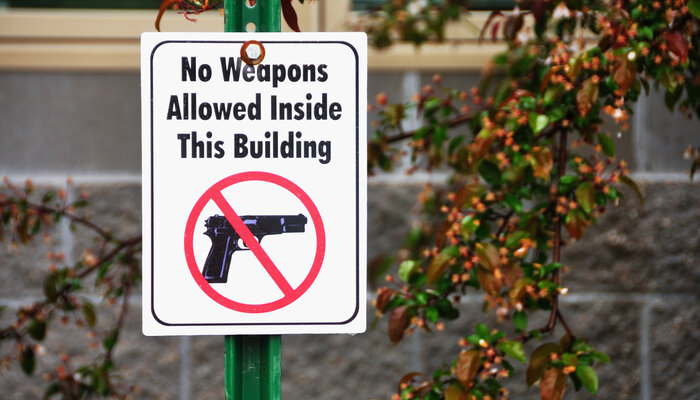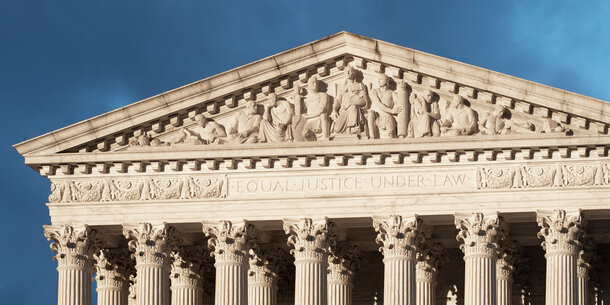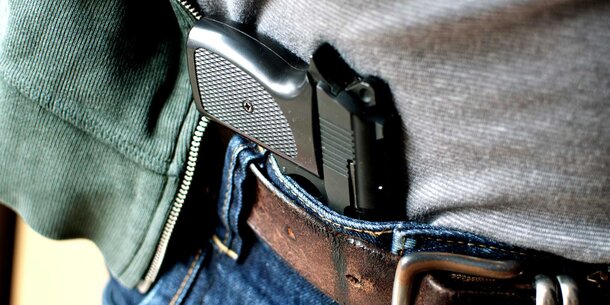This article was originally published in the Daily News.
New York State legislators were called back for a special session this week to consider a groundbreaking response to the Supreme Court’s far-reaching expansion of gun rights. Last week’s decision in New York State Rifle & Pistol Association v. Bruen will make it easier for people to obtain concealed-carry gun licenses in New York and across the country. But nothing in the Second Amendment — nor anywhere else in the Constitution — gives people a right to carry guns onto other people’s private property.
An astute group of policymakers is aware of this and crafted a commonsense legislative response to the Bruen decision. Alongside vital changes to the training requirements for gun permits and other reforms, the legislation requires gun owners to have express permission from property owners in order to carry their guns onto private property: homes, stores, restaurants, offices, nightclubs, movie theaters and the like.
Right now, in New York, if a person has a concealed-carry license, they are legally allowed to carry their guns with them in most public places. These people can also legally take their guns into a private place unless the property owner expressly tells them they are not allowed. The new legislation would flip this default setting, empowering New Yorkers to have more control over their own property.
This new measure comports with public opinion.
Roughly 80% of New Yorkers live in a home without a gun. And legal scholars Ian Ayres and Spurthi Jonnalagadda conducted a national poll to show that a majority of Americans prefer a “no-guns” default inside retail establishments (56%), places of employment (75%) and private homes (68%). As they explain in a companion piece published in The Hill, “regardless of the context — home, hunting or retail — most people thought that guns should not be carried onto other people’s property without their express permission.” New York joins several other states that have already heeded this public preference when it comes to private homes and hunting lands.
Beyond homes, the new policy effectively establishes private stores, restaurants and places of employment as presumptively gun-free. Employers, restaurants and movie theaters have every right under the Constitution to keep weapons off their property, and the legal change will ease their ability to adopt a no-guns policy to protect employee and customer safety.
One of the major benefits of this private-property-focused approach is that it’s entirely constitutional. Yes, after Bruen, the Second Amendment limits the ability of the government to regulate guns in public places. But the Constitution also protects property rights.
Under the New York proposal, property owners still can choose to allow guns on their property; they would just have to post a sign or grant express permission after being notified by a gun carrier. Since, according to the Ayres and Jonnalagadda study, the vast majority of people are unaware that the current default permits people to carry guns onto their property without their say-so, the law would have the net effect of giving control back to all property owners.
Given the newness of this approach, questions will surely arise about how the no-guns presumption will apply in practice, including how much leeway gun carriers will have when the public/private boundary is unclear. As written, the law criminally punishes someone who “knows or reasonably should know” that the private property owner has not posted signage permitting guns or otherwise provided consent. Public education about the law will be of paramount importance.
In addition to the concerns of people bringing weapons onto private property, among other reforms, New York is also clarifying “sensitive places” where gun-carry will be prohibited, including the New York City subway, Times Square, and various places where children gather. Furthermore, New York had no state training requirement before Bruen. Now permit applicants will need to get at least 16 hours of in-person training, as well as live-fire training at gun ranges. Even though these and other reforms appear to be designed to comply with the regulatory avenues left open after Bruen, they will likely be challenged as violating the Second Amendment after the Supreme Court’s upheaval last week.
The Bruen decision is forcing states to adapt to a world in which more people will secretly carry weapons, which some research shows could result in more crime. A related implication is that more people will be crossing from public to private property with firearms. By making clear that gun carriers must have explicit permission from property owners to do so, New York is addressing that important implication of the Supreme Court’s decision in Bruen.



